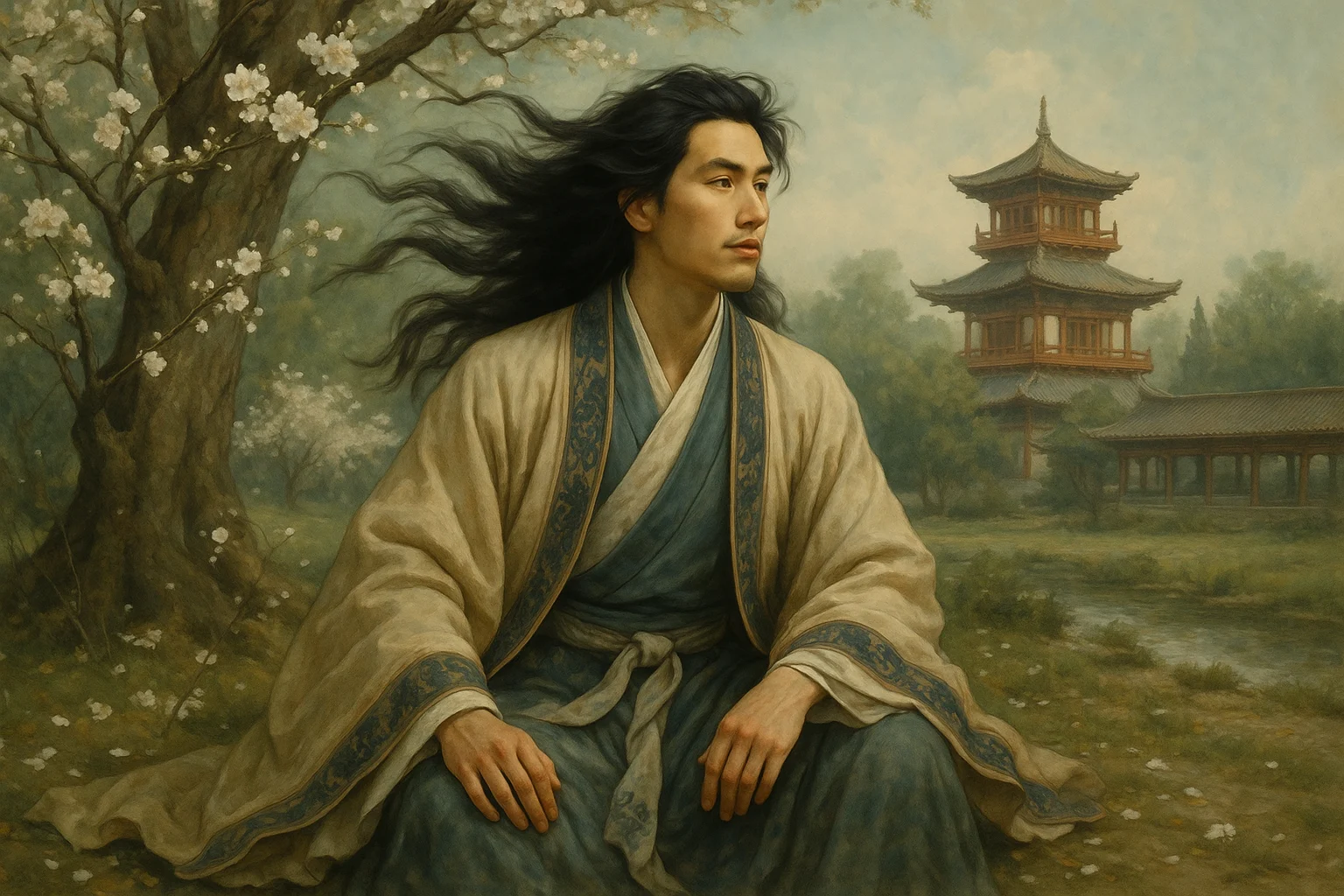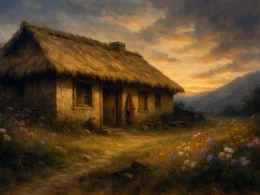Southward you go, with gibbons’ cries your mournful escort—
as I turn back, autumn grasses blur beneath my tears.
In frozen dusk, snow falls upon the empty hills;
in that desolate land, how few the homes to take you in.
Original Poem
「送客贬五溪」
韩翃
南过猿声一逐臣,回看秋草泪沾巾。
寒天暮雪空山里,几处蛮家是主人。
Interpretation
This poem was composed during the Mid-Tang period, a time of political turmoil when many scholar-officials faced exile. The subject of this farewell poem was banished to the remote Wuxi region west of the Xiang River, a desolate area inhabited mainly by ethnic minorities. Through the imagery of parting, Han Hong expresses sympathy for his friend's unjust exile while revealing the hardships and helplessness of officials relegated to frontier regions.
First Couplet: "南过猿声一逐臣,回看秋草泪沾巾。"
Nán guò yuán shēng yī zhú chén, huí kàn qiū cǎo lèi zhān jīn.
Southward he goes, a banished man amid gibbons' cries,
Turning to see autumn grasses—tears soak his scarf.
The "gibbons' cries" evoke the journey's desolation, while the backward glance at "autumn grasses" intensifies the sorrow of parting and the pain of leaving familiar lands. The language is concise yet powerful, creating a vivid scene of grief.
Second Couplet: "寒天暮雪空山里,几处蛮家是主人。"
Hán tiān mù xuě kōng shān lǐ, jǐ chù mán jiā shì zhǔ rén.
Cold skies, twilight snow in barren mountains—
A few tribal huts his only shelter now.
"Cold skies and twilight snow" paint a harsh, lonely landscape, while "tribal huts" underscore the exile's displacement among unfamiliar cultures. With sparse yet poignant strokes, the poet captures the isolation and rootlessness of the banished official.
Holistic Appreciation
This seven-character quatrain vividly depicts the desolation and inner turmoil of an exiled official’s journey southward through two parallel four-character couplets. The opening lines portray the banished figure, burdened with sorrow, listening to the mournful cries of gibbons as he travels south, only to turn back and see withered autumn grass—his tears soaking his robes, symbolizing parting grief and solitude. The latter lines shift to the harsh winter landscape: cold skies, twilight snow, and barren mountains, where the dwellings of ethnic minorities become his temporary refuge, subtly conveying the helplessness and bleakness of exile. The poem’s language is simple yet profound, saturated with deep emotion, lamenting the unpredictability of fate and longing for home.
Artistic Merits
Han Hong’s poem employs refined and concise language, skillfully using natural imagery to convey complex emotions. Traditional symbols like "gibbon cries," "autumn grass," "wintry skies," and "evening snow" evoke the bitterness of exile and displacement, creating a vivid and poignant atmosphere. The mention of "barbarian homes" reflects Tang-era cultural perceptions of frontier ethnic groups while indirectly highlighting the hardship and isolation of the exiled. Structurally tight, atmospherically stark, and emotionally raw, the poem epitomizes the mindset of mid-Tang scholars facing political banishment.
Insights
This poem not only mirrors the vicissitudes of ancient literati careers but also underscores the resilience of human sentiment and attachment to homeland amid adversity. Like the exiled official in the poem, one should press forward through life’s trials with tears yet unwavering resolve. Meanwhile, its portrayal of frontier peoples reminds us to respect cultural diversity and empathize with the lived experiences of different communities. Ultimately, the poem teaches that even in desolation, one must preserve sensitivity and passion for life, seeking spiritual solace amidst loneliness.
About the Poet

Han Hong(韩翃), a native of Nanyang, Henan, was one of the "Ten Literary Masters of the Dali era" (大历十才子). He was renowned for his poetry, particularly farewell and parting verses, which gained significant acclaim during his time. The Complete Tang Poems (《全唐诗》) preserves three volumes of his works.











